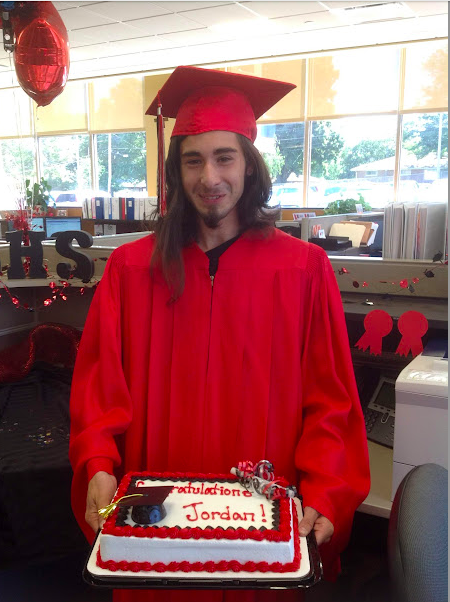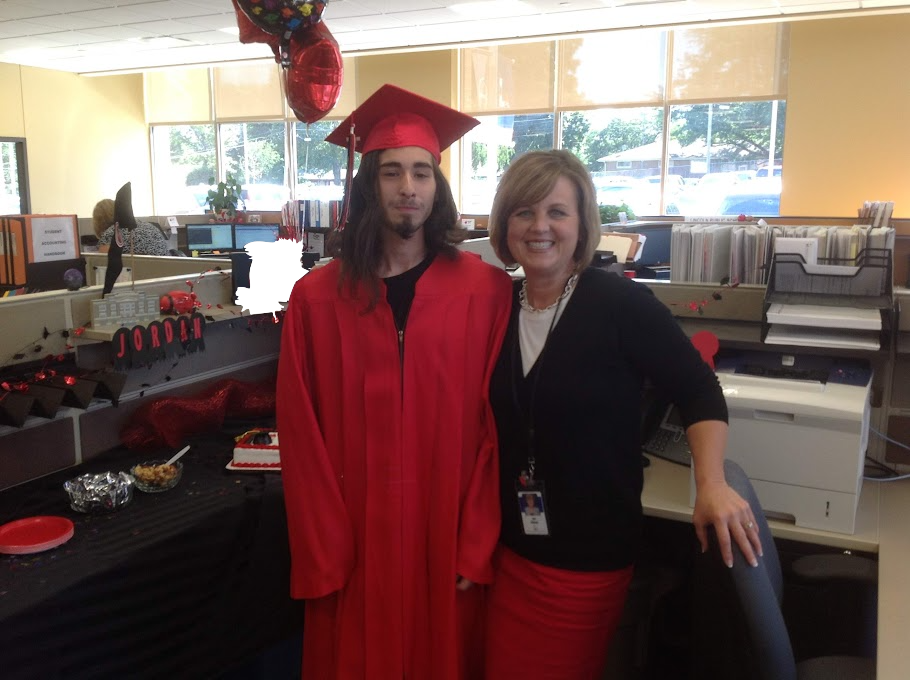It’s graduation season again. The halls are buzzing, calendars are packed with end-of-year events, and families are planning parties that mark one of life’s biggest transitions. Seniors are racing to the finish line, and schools are carefully putting the final pieces in place as the academic year comes to a close.
And every year around this time, I think about Jordan.
A Phone Call From First Floor
It was June—graduation had already passed. I got a call from the front desk: a young man had walked in off the street asking if he could still graduate. I headed down, thinking it might be one of those You Can’t Make It Up moments. And it was.
When I got to the lobby, there he was. Jordan had ridden his bike to the office. He told me he was almost twenty-one and knew he was running out of time to get his diploma. That year, we had put extra effort into reconnecting with students who were close—really close—but hadn’t quite finished. Still, June was late. The year would be finalized in just a couple of weeks.
I asked him how many credits he thought he still needed. I was expecting something like “half a semester” or “a full class load.” He paused, looked me in the eye, and said, “Just one paper.”
A paper?
Surely that couldn’t be right. I brought him upstairs to my office to dig through his records. And guess what? He was right. One English paper. One incomplete. One class standing between him and a diploma.
Now you might be wondering—how did that slip through the cracks? Did we miss something?
We didn’t.
Figuring It Out
As we went through the contact logs and talked more with Jordan, it became clear—his teacher had reached out to him. His counselor. His principal. Phone calls. Home visits. All of it. They’d tried everything to get him back. But Jordan hadn’t been ready to accept help back then. He said it himself: he was making choices that kept him away from school. And unlike so many of our students, Jordan didn’t have a parent pushing him to finish, no party waiting, no crowd of family cheering him on. He was, for the most part, on his own.
So I asked him: Are you ready now? Will you finish the paper?
He said yes.
So we made a plan. I didn’t expect to see Jordan again.
But I was wrong.
Start Writing
For five days, Jordan came to my office.
Day one: Brainstorming. His homework was to come back with a list of ideas.
Day two: Outlining. I asked him how it felt to make progress. He smiled and said, “Good.”
Day three: Writing paragraphs. We talked about effort and progress, and how the two often go hand in hand.
Day four: The rough draft. He sat at the table for two hours and wrote until it was done. I proofread; he took notes.
Day five: Final edits. Then, I asked him if he remembered whether they had to read their papers out loud in class. He said yes. So, naturally, we found a group of staff, and Jordan read his paper—out loud, in front of adults who showed up just to hear him.
He was so proud. And honestly, I’m not sure he’d ever had that kind of positive attention from that many adults in his life before.
After that, we were able to submit the final grade. The “I” became a letter. He was officially done.
But we weren’t.
Time To Celebrate
We knew he missed his graduation years before. And we knew he didn’t have anyone planning a party or saving a seat in the auditorium. So we did what we do best—we figured it out.
A cap. A gown. Two board members. A diploma. A surprise mini-ceremony. Jordan thought he was just picking something up from the front desk. Instead, he got to experience a moment he’d missed—one that someone like him so rarely gets a second shot at.

And when it was over, he left on his bike—with cake in his stomach and a diploma in his hand.
Could we do this for every student? Maybe not. But for Jordan, it felt like exactly the right thing to do.
You Can’t Make It Up!
The Public and The Education
Here’s what I keep coming back to: Where was the failure?
When public education is criticized—and it often is—we tend to treat it as one thing. But what if we pulled it apart?
Public. Education.
Jordan’s education showed up for him. He had access to strong teachers, a solid curriculum, and a team that kept reaching out—even after he stopped responding. His records were full of effort. His teachers didn’t forget about him. His school didn’t move on. They were relentless in trying to help him succeed.
But what about the public side? That’s where the cracks showed. Jordan didn’t have a parent nudging him forward. No mentor checking in. No stable place to land at the end of the day. That’s not a failure of the education system. That’s a breakdown in public support—family, community, a social safety net.
So what happens when education keeps showing up, but the public doesn’t?
In my 36 years in this profession, I’ve never seen a school that wasn’t working to get better—digging into data, refining systems, trying new interventions, asking hard questions.
But I’m not always sure we ask the same of the public. Do we talk about how families support students? How caregivers and guardians engage? How we, collectively, make it possible for students to use what schools are offering?
Some do. Many try. But Jordan is the reminder: sometimes, they don’t.
And when that happens, schools stretch. We make plans. We ride the edge of what’s possible, because it’s the right thing to do. And if the public knew the extent of those efforts, I believe the narrative would be different.
I don’t know what happened to Jordan after that day. But I do know this: we gave him every last piece of success we could offer. A paper. A diploma. A moment to feel seen.
And I hope the public—whatever that looks like for him now—is showing up with the same relentless care education did.

Happy Graduation!
Jane
